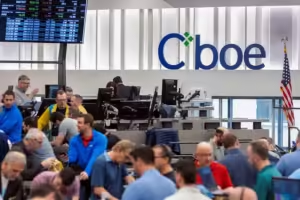Crypto Exchange BitMEX Pleads Guilty to Violating the Bank Secrecy Act from 2015 to 2020

Quicktake:
- BitMEX has admitted to breaching the Bank Secrecy Act (BSA) from 2015 to 2020.
- Four BitMEX executives previously pleaded guilty to the same charges.
- The exchange failed to implement proper KYC and AML protocols, facilitating money laundering.
- U.S. Attorney emphasizes the necessity for crypto companies to adhere to U.S. laws.
BitMEX, the Seychelles-based cryptocurrency exchange, has admitted to violating the Bank Secrecy Act (BSA) between 2015 and 2020, as announced by the U.S. Department of Justice (DOJ) on Wednesday. This guilty plea follows earlier admissions of guilt by four BitMEX executives who faced similar charges.
Failure to Implement KYC and AML Programs
Court documents reveal that BitMEX knowingly neglected to establish adequate know-your-customer (KYC) and anti-money laundering (AML) programs. From September 2015 until September 2020, the Commodity Futures Trading Commission (CFTC) charged BitMEX with offering illegal crypto derivative trading services to U.S. customers. Concurrently, the DOJ accused four BitMEX employees of violating the BSA.
During this period, BitMEX allowed users to register and trade cryptocurrencies anonymously, without requiring any identifying information or documentation. The platform even marketed itself as a venue where retail customers could trade without real-name verification. This lax approach to AML and KYC standards turned BitMEX into a hub for money laundering and sanctions violations, according to prosecutors.
Legal Consequences and Official Statements
In a DOJ press release, U.S. Attorney Damian Williams stated, “As BitMEX’s founders and long-time employee admitted in federal court in 2022, the company, one of the leading cryptocurrency derivatives platforms in the world from 2015 to 2020, operated in the United States without any meaningful anti-money laundering program, as required by federal law.” Williams emphasized that BitMEX’s operations posed a significant threat to the integrity of the financial system by facilitating large-scale money laundering and sanctions evasion schemes.
Williams reiterated the importance of cryptocurrency companies complying with U.S. laws, particularly if they wish to benefit from the U.S. market. He stated, “Today’s guilty plea indicates again the need for cryptocurrency companies to comply with U.S. law if they take advantage of the U.S. market.”
The Broader Implications
BitMEX’s case highlights the critical need for robust KYC and AML practices in the cryptocurrency industry. The exchange’s failure to implement these measures exposed the financial system to significant risks and showcased the potential for misuse of cryptocurrency platforms for illicit activities.
Impact on the Crypto Industry: The guilty plea by BitMEX sets a precedent for regulatory enforcement in the cryptocurrency sector. It serves as a stark reminder to other crypto exchanges about the importance of adhering to legal requirements. This case also underscores the increasing scrutiny that regulatory bodies are placing on the industry, particularly concerning AML and KYC compliance.
Regulatory Landscape: The regulatory environment for cryptocurrencies is becoming more stringent globally. Governments and regulatory agencies are focusing on ensuring that cryptocurrency exchanges and other related businesses adhere to financial laws designed to prevent money laundering and other illicit activities. The BitMEX case is a clear indicator of the actions regulators are willing to take to enforce compliance and protect the financial system’s integrity.
Industry Response: In response to regulatory pressures, many cryptocurrency exchanges are enhancing their KYC and AML protocols. These measures are not only necessary to comply with regulations but also crucial to gaining and maintaining user trust. The BitMEX incident serves as a wake-up call for the industry, emphasizing the need for transparent and secure operations.
Moving Forward
For BitMEX, this guilty plea marks a significant turning point. The exchange will need to take substantial steps to rebuild its reputation and ensure compliance with all relevant laws. This includes implementing comprehensive KYC and AML programs and cooperating fully with regulatory authorities.
Future Compliance: Moving forward, it is essential for BitMEX and other exchanges to prioritize regulatory compliance. This will involve investing in advanced compliance technologies and processes, training staff on regulatory requirements, and continuously monitoring and updating their practices to align with evolving laws and standards.
Market Impact: The immediate market reaction to BitMEX’s guilty plea may include heightened volatility and scrutiny of other exchanges. Investors and users will likely become more cautious and demand higher transparency and security standards from the platforms they use. In the long term, however, these regulatory actions can lead to a more robust and trustworthy cryptocurrency ecosystem.
Conclusion
The guilty plea by BitMEX for violating the Bank Secrecy Act between 2015 and 2020 underscores the critical importance of regulatory compliance in the cryptocurrency industry. This case serves as a reminder of the potential risks posed by inadequate KYC and AML practices and highlights the need for cryptocurrency exchanges to operate within the legal framework. As the industry continues to evolve, ensuring compliance with regulatory requirements will be paramount in maintaining the integrity and trust of the financial system.



